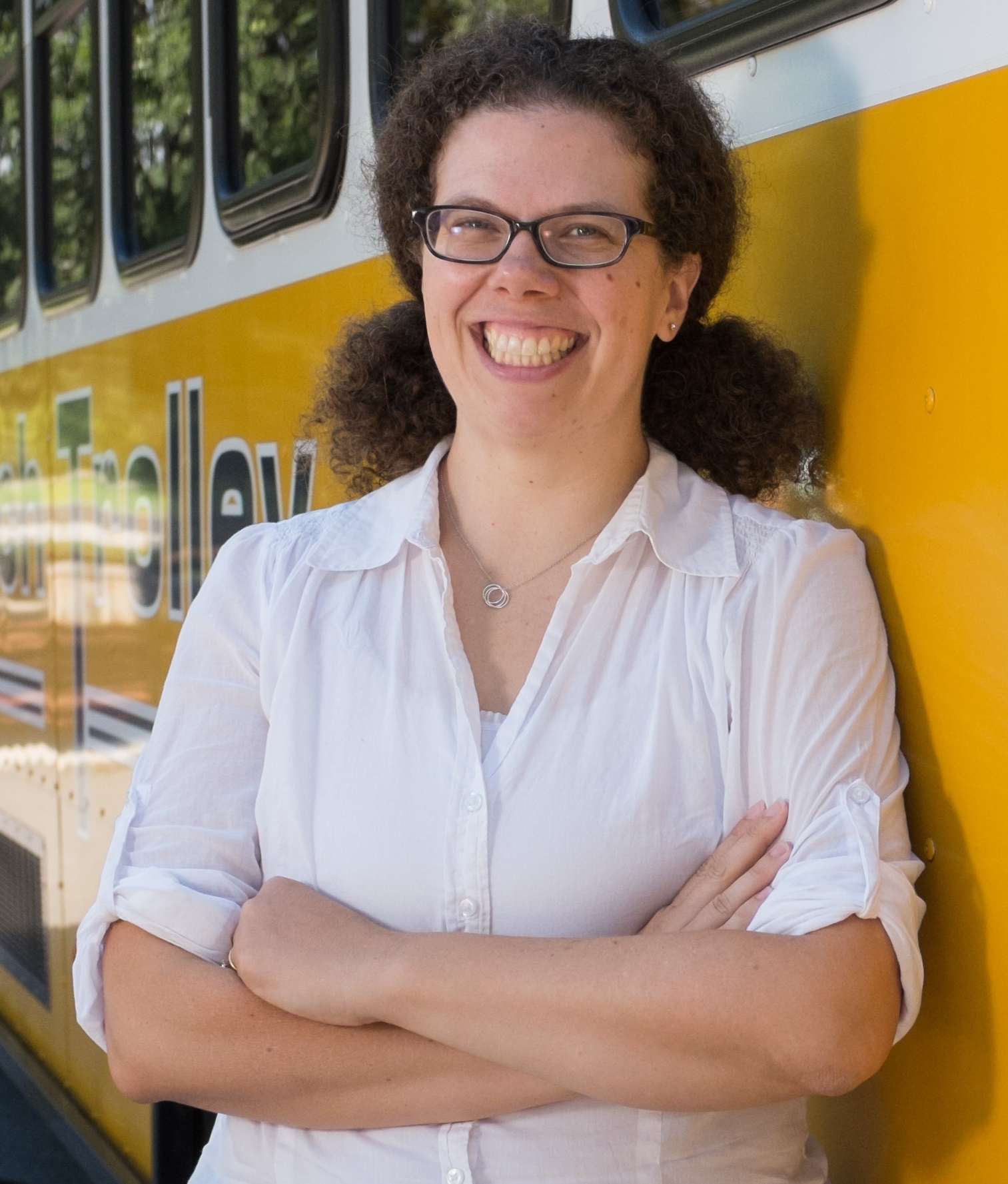Dr. Kari E. Watkins, P.E.

Dr. Kari Watkins has traveled the United States and the globe, and her travels have fed her passion for transportation and education. With a career spanning industry and research, her drive to improve the world we live in has touched many lives across her endeavors.
She first became interested in transportation while a high school foreign exchange student in Germany. Germany’s strong cycling, bus, and train infrastructure and connection to the rest of Europe was eye-opening to Dr. Watkins as a resident of Detroit, car capital of the United States; some of the Germans she met didn’t even have a driver’s license. The combination of extensive bike lanes, Eurail, and bus routes gave her the freedom to explore the country, at an age where her peers in America were reliant on parents with cars, and this freedom left an impression on the budding engineer. In addition to instilling a love of transportation, the experience has also encouraged her to push for more study abroad opportunities in her current role as a professor at Georgia Tech.
After attending Georgia Tech for her undergraduate degree, Dr. Watkins married and began her career as a consulting engineer in Connecticut. She worked as a consultant for 10 years, while simultaneously pursuing a master’s degree from the University of Connecticut. After several of her professors spent time on sabbatical, she was asked to teach their classes, and fell in love with teaching. This led her to make the decision to obtain her Ph.D., in order to eventually become a faculty member. Dr. Watkins and her spouse moved to Seattle, Washington, and she received her Ph.D. from the University of Washington, Seattle (UW).
It was there that she, “saw what multi-modal transportation was really supposed to be like – people could actually bike with kids and it be safe,” and noticed the high level of walkability in the downtown areas near UW and the convenient and widely used transit systems. For Dr. Watkins, this marked her first experience with such a pedestrian, bicycle, and transit friendly model of infrastructure in the United States, and it was eye-opening. She found a research partner who shared her interest in transit, though with a computer science background. It was this collaboration that began her research using computing to better solve transportation problems, eventually giving birth to the OneBusAway project, which was a joint dissertation project for the two Ph.D. candidates.
At the time of its inception, OneBusAway was a revolutionary concept; at a time when smartphones weren’t as widespread and real time information was hard to come by, the project was ambitious in its goal. Across the country, it met with varying results, including a 2% directly attributable increase in ridership in New York City. Dr. Watkins jumped at the opportunity to take a position as a professor at Georgia Tech and return to her alma mater. As a professor at Georgia Tech Dr. Watkins has researched several innovative projects focusing on transit and bicycling. OneBusAway is now multi-regional, serving New York City, Tampa, Washington, D.C., Atlanta, and Seattle, and Dr. Watkins is now the chair of the board of directors of the program, now thriving and involving other researchers. She has also collaborated with Dr. Chris Le Dantec of Georgia Tech’s School of Literature, Media, and Communication on a new app called Cycle Atlanta, which gathers information from the city’s cyclists about where they travel and what they see, both issues and assets. She believes that cycling research has enormous potential to affect the future of alternative transportation in Atlanta, and though much progress remains to be made, Cycle Atlanta and initiatives like it lead the way.
On the discipline of Civil Engineering as a whole, Dr. Watkins says that it is at a great intersection of intellectual, problem solving, and people skills, and that many grand challenges are based on how we move from one place to another. Therefore, any progress in transportation has the potential to touch untold numbers of lives.
Theme by Danetsoft and Danang Probo Sayekti inspired by Maksimer
